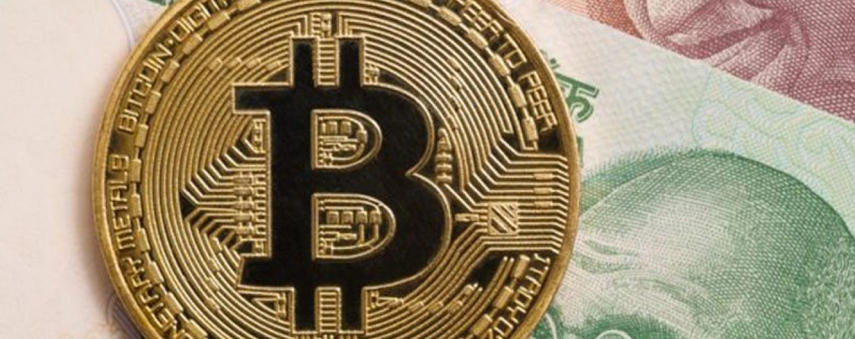India could ban private cryptocurrency: why?

Credit: Swarajya
The “Banning of Cryptocurrency & Regulation of Official Digital Currency Bill, 2019” has been listed on the official Department of Economic Affairs website.
An Indian government inter-ministerial committee (IMC) has recommended that “cryptocurrencies created by non-sovereigns” should face a total ban.
The report states that all private cryptocurrencies except ones issued by the government will be banned in India, declaring any activities related to cryptocurrencies as a criminal act. The committee consisted of the Secretary (Economic Affairs) as the chairman, along with the Secretary, ministry of electronics and information technology, SEBI chairman and the deputy governor of the Reserve Bank of India.
The report, along with a draft bill, was submitted to the government on Monday. The IMC report and the draft bill will be reviewed before action is taken; the report claims that there are around 2,116 cryptocurrencies with a market capitalisation of $119.46 billion.
“The Committee notes with serious concern mushrooming of cryptocurrencies almost invariably issued abroad and numerous people in India investing in these cryptocurrencies. All these cryptocurrencies have been created by non-sovereigns and are in this sense entirely private enterprises,” the report says.
According to the committee, cryptocurrency cannot serve the same purpose as traditional fiat currency. “The private cryptocurrencies are inconsistent with the essential functions of money/currency,” the report claims, “Hence private cryptocurrencies cannot replace fiat currencies”
Why are some people so sceptical of cryptocurrency?
Centuries ago, we traded possessions. Gold, silver and other precious metals were swapped from person to person before coins were formed from these metals. Next came notes, which were significantly lighter, meaning that buyers and sellers could trade large amounts of money without needing to transport it.
Eventually, “fiat money” – “Let it be done” in Latin – was introduced. Governments began controlling legal tender, determining its worth and enforcing laws stating that printing your own currency was illegal, as it diluted the structure already in place. Exchange rates were set between differing currencies – either floating exchanges or fixed – in order to let citizens swap from one kind of money to another.
The invention of money predates written history. This timeline is important when considering cryptocurrency’s role in the history of the currency as a whole. Money has had intrinsic value for centuries and though we no longer make pound coins out of solid gold, our currencies are centralised and regulated thoroughly. This is where cryptocurrency comes in.
There’s no denying that value is evolving. Physical assets are still worth money, but digital assets are increasing in worth too.
The report recently published in India is particularly critical of decentralised currencies and it is not alone in its fear. There are many who misunderstand the concept of decentralisation and assume that if, for example, Facebook introduces a cryptocurrency, it’s Facebook issuing the money on that platform.
“There is no underlying intrinsic value of these private cryptocurrencies. These private cryptocurrencies lack all the attributes of a currency. There is no fixed nominal value of these private cryptocurrencies i.e. neither act as any store of value nor they are a medium of exchange,” the Banning of Cryptocurrency & Regulation of Official Digital Currency Bill, 2019, states.
Simply, your fiat bank account is backed by your bank. Your bank is regulated by the government. If your bank is hacked, you will receive your money back. If your bitcoin were to be hacked, there’s no back-up.
Is banning cryptocurrency a good thing?
Sceptics aren’t just lining up on one side to oppose crypto. There are those that believe that institutions’ deep distrust of digital currencies suits their stronghold of the status quo and the existing structures in place by the establishment.
“The divine line ‘Bitcoin/Cryptocurrency is for criminals’ is a cunning defensive strategy created by [the] so-called traditional financial services sector,” Mohith Agadi, Founder of CEO of Cryptobond, once claimed.
Regardless of whether banks and governments have an ulterior agenda when it comes to banning digital currency, there’s no denying that value is evolving. Physical assets are still worth money, but digital assets are increasing in worth too: the world’s top five companies are all technology-based and have data as a primary asset.
Cryptocurrencies can be a stable way to store value and where they differ strongly to fiat money is that their values are not determined by any kind of action from a government or local economy. Before the global financial crash in 2008, for example, the pound rocketed from $1.40 to $2.10 in October 2007, in just five years. Independent cryptocurrencies don’t have to be intertwined with the growth of a country: this is good news for citizens in countries with a weak national fiat currency.
Whilst experts can disagree about the promise of crypto, however, blockchain and the idea of decentralisation is beginning to capture the imagination of businesses. Cryptocurrency is still an evolving innovation; a new infrastructure technology could emerge from blockchain and potentially revolutionise the way we think of digital value, just as digital value has transformed our concept of physical value.
